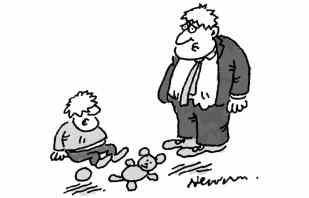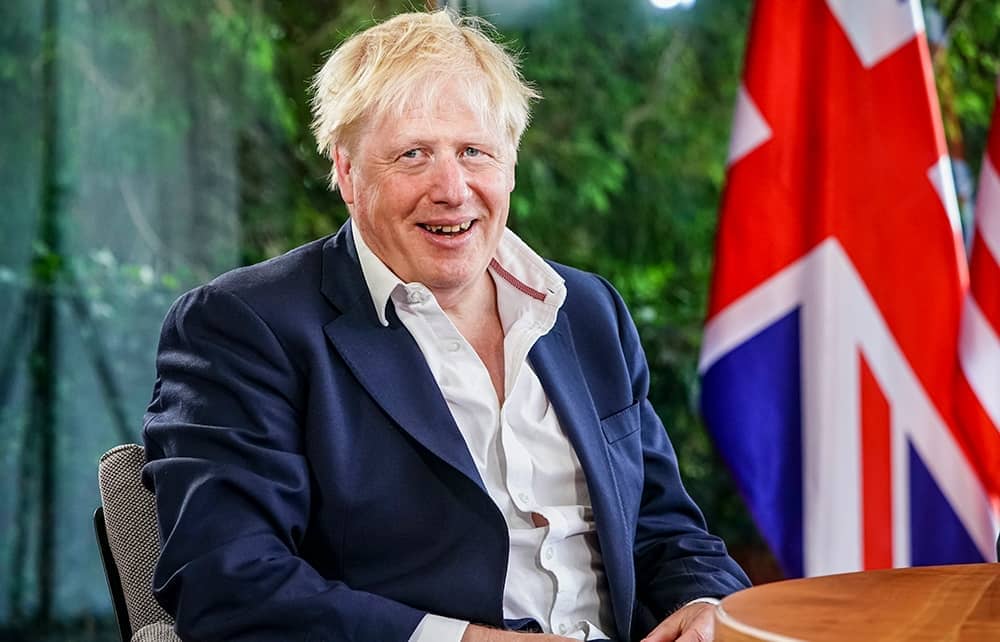Boris Johnson has always been a celebrity politician. It is one of the reasons why the normal rules of politics have so often not applied to him. This status has given him political reach and put him on first-name terms with the public. It makes it easier for him to command media attention than other politicians: a fact that he turned to his advantage in 2016 and 2019. But this strength is now becoming a weakness.
Johnson’s ability to dominate politics means that the country is now polarising into pro- and anti-Boris camps. The worry for him is that he has more opponents than supporters. Last week’s by-elections suggest people are prepared to vote tactically to give him a kicking. ‘His celebrity is working against him,’ laments one secretary of state.
One traditional advantage of the Tories has been that they dominate the right of politics while Labour has more competition on the left. But it leaves them vulnerable to tactical voting. It cost them 30 seats in 1997, turning a bad defeat into a catastrophic one.

At the last election, top-down attempts to encourage tactical voting by Remain supporters had little effect. There were several reasons for this, most notably that many Liberal Democrat-inclined voters were more scared of Jeremy Corbyn than of Brexit. Labour supporters, meanwhile, had not forgiven the Liberal Democrats for going into coalition with the Tories in 2010. But with Keir Starmer as Labour leader, who could be described as many things but not scary, and the Liberal Democrats shifting left, the conditions for tactical voting are more fertile.
Tactical voting is particularly dangerous for the Tories at the moment because the anti-Tory bloc in British politics – Labour, the Lib Dems and the Greens – is polling at around 60 per cent. If their supporters start coordinating, the results could be absolutely devastating for the Tories.
The two by-elections last week suggest that this is already happening, with voters self-sorting to work out the best way to defeat the Tory candidate. Take Tiverton. In the last two general elections Labour had come second in the seat, but the constituency’s make-up meant that the party would struggle to take the seat. Voters intuited this, guided by the fact the Labour campaign was very low-key while the Liberal Democrats descended on the seat in numbers. The result: Labour went from second to losing its deposit, and the Liberal Democrats overturned a 24,000 Tory majority. It was a reminder that when voters want to do something – in this case unseat the Tories – they find a way. In Wakefield, where Labour took the seat back from the Tories, there was tactical voting too – albeit on a smaller scale. The Liberal Democrat vote there halved.
When a prime minister is unpopular, the electorate finds all sorts of ways to defeat them
Johnson loyalists point out that by-elections are particularly suited to tactical voting. In a general election, the national campaign dominates, making it far harder to give voters the kind of cues they were given in Tiverton. But the worry for the Tories is that after 12 years in power, the question becomes whether you are for or against them, and people will vote accordingly.
As the Australian election showed, when a party has been in office for some time and the prime minister is unpopular, the electorate finds all sorts of ways to defeat them, including in constituencies that had long been considered safe. Interestingly, the success of the Teal Independents in Australia’s prosperous, traditionally Liberal seats was driven more by Labour and Green supporters voting tactically than by disillusioned former Liberals.
The question of whether changing leader would help reduce the potency of tactical voting will be a factor as Tory MPs assess Johnson’s future. Implicit in the resignation letter of the Tory chairman Oliver Dowden was the suggestion that the party would do better under someone else. In the three weeks since the no-confidence ballot, it has become increasingly clear that the issue has not been resolved. Instead, Johnson – much to his irritation – will have to live with constant speculation about his future. The worry for the PM is that even those cabinet ministers who have consistently backed him are beginning to worry that the public have just stopped listening to him.
One of the classic ways for a prime minister to try to reassert his authority is through a reshuffle. Johnson will have to do one at some point – he needs a new party chairman after all. But any reshuffle is fraught with risk. If Johnson sacks a slew of ministers, they are likely to join the disaffected on the backbenches. It’s worth remembering that the rebels were only 32 votes short in the no-confidence ballot. But a very small reshuffle would risk alienating ambitious young thrusters who want to make rapid progress up the greasy pole.
Added to that is the fact that many MPs interpreted compliments ahead of the no-confidence vote as the promise of a job to come. They too would be disappointed by a limited shuffle. Finally, there is the question of what the strategic aim of any reshuffle should be. It would be sensible to use it to try to bring the party back together, by broadening the tent. But No. 10 sees plots everywhere and is unlikely to go down this route.
One neat way of avoiding the pitfalls of a full reshuffle would simply be to send Brandon Lewis, the Northern Ireland Secretary, back to Conservative Campaign Headquarters. Lewis is a solid media performer and, having been chairman before, would slot in easily. Conor Burns, a Belfast-born Catholic Unionist, could become Northern Ireland Secretary. He’s currently the Minister of State there and the special envoy on the Protocol, so that would be a smooth transition. He is also a Johnson loyalist who could be promoted without riling the rest of the parliamentary party.
The next test of opinion in the Conservative parliamentary party will be the election this month of the new executive of the 1922 Committee of Tory backbenchers. It is these 18 who will have the power to change the rules and allow another no-confidence ballot within the next 12 months. If the new membership of the executive includes more of those who are critical of the leadership, that will be another worrying sign for No. 10.







Comments